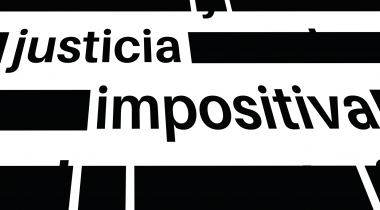
Naomi Fowler ■ Isle of Man: an awareness-raising swim and reflections on tax havenry

The Isle of Man is part of the UK’s network of satellite havens and secrecy jurisdictions, ranked number 17 in the 2019 Corporate Tax Haven Index and number 42 in the Financial Secrecy Index in 2018 by the Tax Justice Network. We identify the UK as “bearing the lion’s share of responsibility through its controlled network of satellite jurisdictions” for the breakdown of the global corporate tax system.
Now Global Witness campaigner Mike Davies has just completed an awareness-raising and fundraising swim around the island. You can read all about his experience and his reflections here on his blog. Here he is swimming…
John Christensen of the Tax Justice Network caught up with him between swims in the Isle of Man and they talked about financial secrecy, tax havenry and Mike’s fascinating family connections to the island. You can hear some of that conversation here in this special podcast:
We’re reproducing part of Mike’s blog below and we’d encourage you to read more there about this fascinating journey:
John has visited the Isle of Man on many occasions over the past three decades. He told me that he has always been impressed by its relative openness and civility when it comes to sensitive debates about the financial services sector that dominates the Island’s economy.
He worries, though, that the Isle of Man has fallen victim to the same ‘finance curse’ phenomenon that has affected his native Jersey and is the subject of a recent book of the same name that he contributed to. John’s concern is that the Island has got itself into a situation where its financial services industries are much too powerful, politically, and have pushed up property prices and living costs to a point where it is almost impossible for other types of business to emerge and flourish.
The Tax Justice Network that John founded publishes regular reports on levels of secrecy and tax policies of offshore financial centres and he showed me a couple of the most recent ones relating to the Isle of Man. They are less than flattering.
The Corporate Tax Haven Index, launched just three months ago, “ranks the world’s most important tax havens for multinational corporations, according to how aggressively and how extensively each jurisdiction contributes to helping the world’s multinational enterprises escape paying tax, and erodes the tax revenues of other countries around the world. It also indicates how much each place contributes to a global ”race to the bottom” on corporate taxes.”
The Isle of Man comes in at #17. That places it behind – so not as bad as – fellow UK Crown Dependencies Jersey (#9) and Guernsey (#15), as well as chart-toppers The British Virgin Islands. It compares unfavourably, however, with such less than reputable jurisdictions as Malta (#23), Panama (#26) and Liechtenstein (#37). The Island’s scorecard shows a clean sweep of red cards for ‘Loopholes and Gaps’, ‘Transparency’, ‘Anti-avoidance’ measures and ‘Double Tax Treaty Aggressiveness’ and an aggregated score of 100 out of 100 in terms of how corrosive its tax policies are to the global economy.
John points out that the Isle of Man’s score is actually worse than those of Jersey and Guernsey and it only ranks below them because it is a smaller global player.
I asked John what he thought about the arguments made by some on the Isle of Man that it should not be labelled a tax haven. His first reaction was to laugh, before saying that “Huff and puff as they may about not being a tax haven, the evidence tells its own story. There is no point in having this discussion. It’s like someone with a serious drug problem: no one believes you, it’s not credible, so stop saying it; you are just making life worse for yourself.”
Tax Justice Network’s Financial Secrecy Index, established in 2009, is published on a two year cycle. It “ranks jurisdictions according to their secrecy and the scale of their offshore financial activities. A politically neutral ranking, it is a tool for understanding global financial secrecy, tax havens or secrecy jurisdictions, and illicit financial flows or capital flight.” Here the Isle of Man doesn’t fare so badly, coming in at #42, with its secrecy rating in the yellow, rather than the red.
Perhaps this secrecy level is in line with John’s observations on how the Isle of Man does at least allow space for a measured debate about the role of its financial services in a way that Jersey – where the political establishment has been ruthless in shutting down any such discussions – does not.”
Mike Davies’ blog: Mike’s Isle of Man swim 2019
Related articles

The secrecy enablers strike back: weaponising privacy against transparency
Privacy-Washing & Beneficial Ownership Transparency
26 March 2024

Policy research conference: How a UN Tax Convention can address inequality in Europe and beyond

Inequality Inc.: How the war on tax fuels inequality and what we can do about it

New Tax Justice Network podcast website launched!

El secreto fiscal…tiene cara de mujer: January 2024 Spanish language tax justice podcast, Justicia ImPositiva

The Corruption Diaries: our new weekly podcast

Tax Justice Network Arabic podcast #73: ملخص 2023

Get rich cheating in our (educational) tax dodgers version of monopoly
Why beneficial ownership frameworks aren’t working – and what to do about it
20 December 2023

